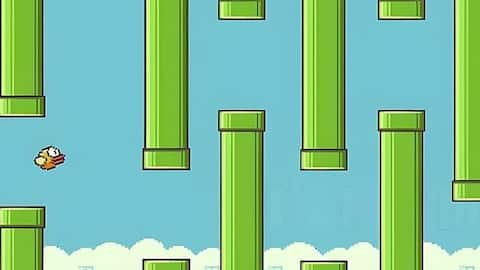Viral game 'Flappy Bird' is coming back after decade-long hiatus
What's the story
Flappy Bird, the popular mobile game that took the world by storm a decade ago, is making a comeback. The game's revival is being spearheaded by The Flappy Bird Foundation, self-described as a "new team of passionate fans committed to sharing the game with the world," rather than its original creator Dong Nguyen. It will be available on web browsers by the end of October and on iOS and Android platforms in 2025.
Acquisition details
Foundation acquires game's trademark and character rights
The Flappy Bird Foundation has acquired the game's trademark from US firm Gametech Holdings LLC. The foundation also secured the game and character rights of Piou Piou vs. Cactus, which is believed to have inspired Flappy Bird. Michael Roberts from the foundation expressed his excitement about reviving Flappy Bird and delivering a fresh experience for players.
Game upgrades
New version to feature enhanced gameplay
The revamped version of Flappy Bird will offer an enhanced gaming experience with new modes, character skins, progression, and multiplayer challenges. The foundation aims to "revamp the game's ecosystem while maintaining the familiarity of the game design that was enjoyed globally." The original creator, Dong Nguyen, has not yet commented on the game's return or his involvement in its relaunch.
Website insights
Upcoming features and characters revealed
The new Flappy Bird website provides a glimpse into the upcoming features of the game. These include a "rivals" mode where players can compete against 99 others, and another mode involving shooting birds through basketball hoops. The site also introduces new characters like "Peng" the penguin, and "Quirky," who sports a rainbow mohawk.
The past
Flappy Bird was shockingly pulled from mobile phones
Nguyen's Flappy Bird debuted in 2013 and gained immense popularity the following year. By the end of January 2014, it was the most downloaded game on the App Store, surpassing 50 million downloads. However, in February 2014, Nguyen removed the game amid accusations of plagiarism and concerns about the stress of fame and player addiction. While numerous clones emerged, many of which had superior technical features, they lacked the original game's simple, endearing appeal.
